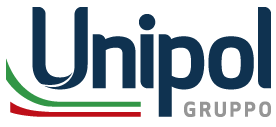SRI Investments
The Group’s investment policies pursue, in the medium to long term, its commitment to combining economic and profitability targets with environmental, social and governance (ESG) aspects, through the assessment of each investment.
Screening Method
The exclusion criteria for sustainability screening take into consideration, in the case of countries, the study of a number of markers that show insufficient compliance with the principles defined by the United Nations as part of the UN Global Compact for the respect of human rights and workers, the environment and the fight against corruption. In the case of companies, the assessment focuses on certain sensitive sectors, the violation of human rights, involvement in environmental damage and in serious cases of corruption.
These criteria are applied to investments worth over 57 billion euros, corresponding to 85,5% of assets under management (direct and indirect). At the end of 2016, the percentage of investments meeting screening criteria was equal to 98.6%.
Other aspects of the investment policy
In the definition of its investment policy, the Group paid great attention to speculation on the agricultural commodities market (so-called soft commodities): no forms of investment, direct or indirect (in the management of its clients), are made in this market.
In the area of investment property, Unipol Gruppo adopts a precautionary approach, to protect the human rights of the weakest members of society with regard to the phenomenon of land grabbing, or the large-scale, coercive hoarding of “unused” land, which is sold or rented to third parties (companies or governments of other countries) without the consent of the communities that live there or cultivate that land for food, as defined in the Tirana Declaration.
Investments in the green economy and social interest
Sustainable and Responsible Investments (SRIs) particularly focus on operations that reconcile profitability and risk management targets with the social and environmental sustainability of the business invested in.
In the green economy, we mainly invested in alternative energy, also selecting major sustainable mobility initiatives. This included a significant investment in funds for the purchase of existing forests that generate revenue based on the annual number of trees felled, constantly replanted to maintain the value of the asset until the end of the Fund’s duration. “Income” forests are also better controlled and managed than virgin forests and therefore less prone to fires and weeds.
With regard to investments in social interest, Unipol is present in the social housing sector through stakes in FondoHousing Toscano, the Polaris Parma Social House Fund and the Housing Sociale FVG Fund. During the year, the portfolio benefitted from the addition of a holding in the Uni HS AbitaRE. Fund. These funds are involved in social real estate development and management, with the purpose of supporting the supply of housing for those who are unable to meet housing needs on the market for economic reasons or lack of suitable supply.
According to the Eurosif classification of ethical and sustainable investment strategies, the aforementioned funds were classified under impact investing, for which the percentage of actual impact (equal to the value of real estate investments) is shown for the sake of transparency and the new Eurosif guidelines.
The percentage limit of Alternative Investments and Other Investments is set at 5% of investments; in particular Real Assets may not exceed 1%. This asset class covers investments in physical and tangible assets (other than real estate) whose value depends on profitability; these investments are characterised by a medium to long-term timeframe and pursue social responsibility goals (forestry, alternative energy, infrastructure, etc.). The adoption of a strategic and proactive approach to responsible investment, which includes ethics and social responsibility as factors that may influence Unipol’s reputation in the eyes of public opinion, is also monitored by Reputation Management.
Social Housing impact





